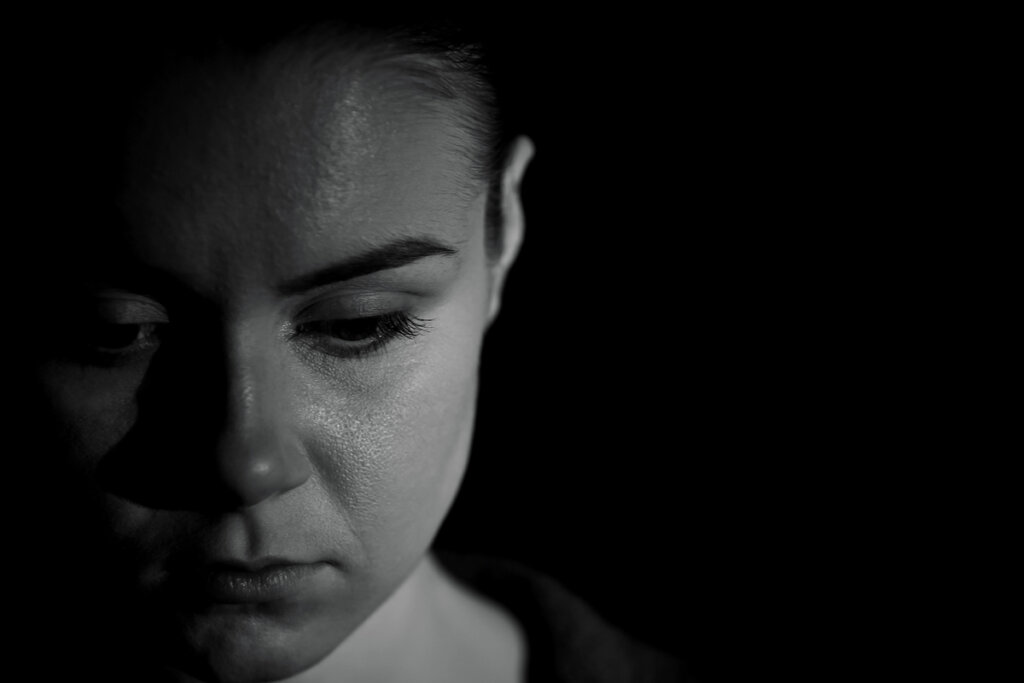I Was Fired for Having Depression

Three years ago, my life was very different. At eight o’clock every morning, I took the car to go to work for a human resources company. Every evening, at 5.30, I clocked off and went home. The first two years were fine. I liked my job and felt really motivated. However, for the last ten months of it, I just wanted to disappear.
Once, I even did. After a rather heated argument with some of my colleagues, I got in my car and started driving aimlessly. After an hour, I stopped at a gas station. I didn’t even know where I was. In fact, I’d driven to another province. I had to call my partner to pick me up because I didn’t feel able to get behind the wheel again.
After that incident, my doctor transferred me to a psychiatrist. He told me that I’d experienced a dissociative episode and was suffering from anxiety and depression. He gave me medication and recommended that I take leave from work but I didn’t. It was self-demand that prevented me. However, it was clear that it wouldn’t be long before I completely broke down.
I suffered workplace bullying from my colleagues. This awoke the trauma I suffered in my childhood due to my father’s mistreatment.

I was fired for having depression
I know that my story isn’t anything out of the ordinary and that lots of people will have had similar experiences. Perhaps this is why I feel it’s so important to talk about it, as it may help others feel less alone and more understood. It’s been three years since my experience, and it’s only now that I feel able to approach it and talk about it in detail.
I worked in the HR department of a large corporation. The job was stressful, but I’d been there for almost eight years, and I understood the dynamics and what was required of me. I was responsible for the recruitment of personnel, their training, the payroll, etc.
I was good at my job. However, I didn’t deal too well with internal disputes and bullying between colleagues. I can’t really say why the mobbing started. It could’ve been due to me pointing out a colleague’s racist and dehumanizing behavior during a selection process. After that, I not only became their enemy, but they also mobilized other colleagues in the department against me. That’s where my problems really started.
Once, when I was on medical leave, my colleagues saw me go shopping. They complained that if I was okay to leave the house and go shopping, it was evident that I was fine and that my condition was a farce.
Asking for support and reporting the bullying didn’t help
When the harassment and bullying began, I reported it to the occupational health department. However, my complaints fell on deaf ears because occupational health was incorporated into the HR department and was directed by one of those colleagues who was ignoring and rejecting me.
I spoke with the director and my manager. They asked me to make a report but it obviously went nowhere. It was at that moment that the anxiety set in along with sleepless nights, hypervigilance, and panic. Every morning, when I had to go to work, I’d throw up and couldn’t help but be late.
The memory of past trauma
Have you ever walked across a frozen lake and felt the ice crunching under your feet? That’s how I felt. I had the feeling that, at any moment, everything would collapse under me and I’d end up drowning. In fact, this bullying situation made me wake up to those childhood days when my father criticized, yelled at me, and physically abused me.
That experience lasted until I was 5 years old when my mother separated from him and we went to live with my grandmother. I thought I’d forgotten the experience, that it was healed and I’d totally overcome it. However, it was still there, like a badly closed and still painful scar.
Without really knowing why I started to experience flashbacks from my past. The stress became overwhelming. One day, I even had to go to the emergency room because I thought I was having a heart attack. But it was an anxiety attack, the first of many.
In between, I had the dissociative experience while driving. Then, just before Easter, a colleague made a move to touch my breasts. The others stood by taking photos and laughing. A day later, I asked for sick leave.
Harassment situations in work environments should be better addressed. Having a specialized departments in companies could help prevent and address these devastating experiences.
They didn’t believe me
Mental illnesses aren’t visible. They don’t show up on an x-ray or a blood test. The problem with having depression is that no one knows when the sufferer will feel ready to return to work. In my case, they rushed me. My boss sent me a message a fortnight later, telling me what day I should return, and started assigning me tasks.
On one occasion, I ran into a colleague at the supermarket. It later transpired this made me the subject of a conversation on the private WhatsApp group of the HR department. They’d blocked me, but another colleague I met told me what they’d been saying.
“If she’s going shopping and taking the car, it’s clear that she can get out of bed and that she’s fine. She just wants to collect her sick pay for doing nothing”. Society continues to think that having depression means not being able to get out of bed and staying in the dark all day, without moving. They don’t realize that psychological distress doesn’t stop you from moving, getting dressed, eating, or even laughing. But doing these things doesn’t mean you’re okay.

My dismissal was both an injustice and a relief
Two months after my leave for depression, I was dismissed. The reason given wasn’t my temporary disability. Obviously, that would’ve been completely inappropriate. In fact, the justification given by the company was my poor performance. I was consistently late, I didn’t meet my objectives, I didn’t know how to create a team with my colleagues, and I was permanently distracted.
To make matters worse, the dismissal almost became a disciplinary action. They blamed me for my conduct prior to my leave, as if it were voluntary behavior and not the effect of my own mental health problem and, above all, the bullying.
After receiving the news, my partner thought of talking to the union to ask for legal support. He insisted that I should denounce the situation, ask for justice, and be reinstated. However, the last thing I wanted was to rejoin that company. In fact, my dismissal was a relief. Moreover, I had no strength or desire to start any legal dispute.
At the time, my mind simply wouldn’t allow it. Indeed, having depression leaves you unable to react. However, when I recovered, a year later, I wanted to move on. Now, the only thing I want is that, in every company and work environment, independent departments are created, those to which employees can turn in cases of harassment. There should also be specialized areas in psychological health. Otherwise, experiences like mine will be repeated every day.
This text is provided for informational purposes only and does not replace consultation with a professional. If in doubt, consult your specialist.








